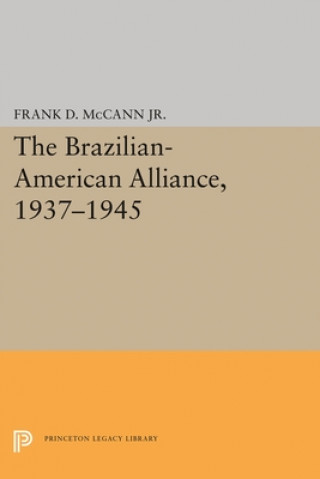
Delivery
Shopping guide





Doesn't suit? No problem! You can return within 30 days
 Gift voucher
any value
Gift voucher
any value
You won't go wrong with a gift voucher. The gift recipient can choose anything from our offer.
Brazilian-American Alliance, 1937-1945
 English
English
 288 b
288 b
 Delivery to Austria
Delivery to Austria
30-day return policy
You might also be interested in


Getulio Dornelles Vargas established his dictatorship in Brazil in 1937, and from 1938 through 1940 American diplomats and military planners were preoccupied with the possibility that Brazil might ally herself with Nazi Germany. Such an alliance would have made fortress America vulnerable and closed the South Atlantic to Allied shipping. Fortunately for America, Brazil eventually joined the Allies and American engineers turned Northeast Brazil into a vast springboard for supplies for the war fronts. Frank D. McCann has used previously inaccessible Brazilian archival material to discuss the events during the Vargas regime which brought about a close alliance between Brazil and the United States and resulted in Brazil's economic, political, and military dependence on her powerful North American ally. He shows that until 1940 the drive for closer union came largely from Brazil, which wanted to offset the shifting alliances of the Spanish-speaking countries and escape from British economic domination. American interest in Brazil increased during the 1930's as the U.S. turned to Latin America to recoup losses in foreign trade and as Washington began to fear that Nazism and Fascism would spread to South America. By 1940 the nature of Brazil's relationship with the United States made it impossible for Brazil to remain neutral. Frank McCann's analysis of Brazil's decision to join the Allies affords a view of the diplomatic uses of economic and military aid, which became a feature of diplomacy in the postwar years. It also provides insights into the military's influence on foreign policy, and into the functioning of Vargas' Estado Novo. Originally published in 1974. The Princeton Legacy Library uses the latest print-on-demand technology to again make available previously out-of-print books from the distinguished backlist of Princeton University Press. These paperback editions preserve the original texts of these important books while presenting them in durable paperback editions. The goal of the Princeton Legacy Library is to vastly increase access to the rich scholarly heritage found in the thousands of books published by Princeton University Press since its founding in 1905.
About the book
 English
English
Categories


 Contact
Contact How to shop
How to shop
























